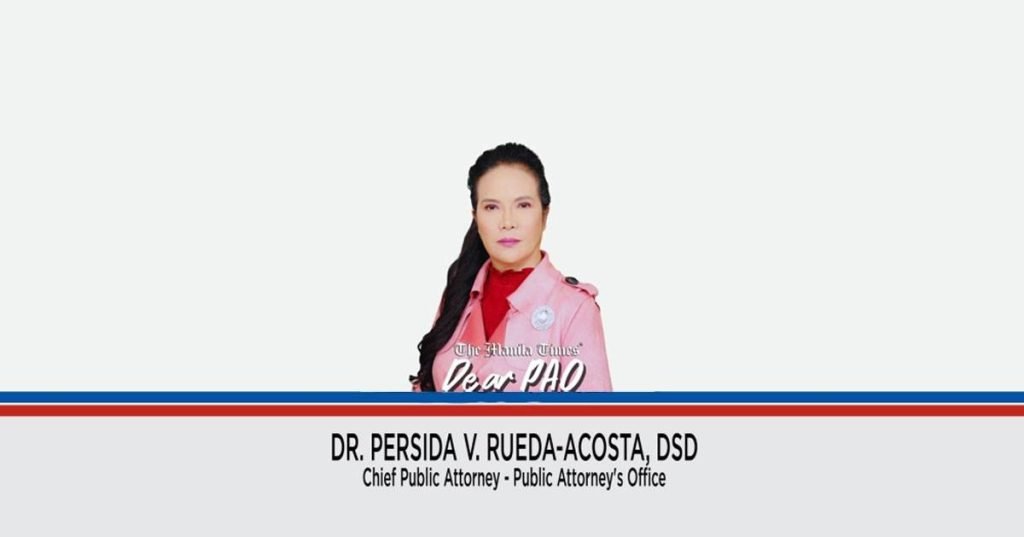
Dear PAO,
My father, who was a doctor, recently passed away. He left a last will and testament where he subjected his kidneys for donation to a hospital upon his death. Can human organs be subject of a donation through a last will? Please help me be clarified. Thank you.
EJ
Dear EJ,
Through a last will and testament, a person controls the disposition of his or her properties within the formalities set by the law, effective upon his or her death. Under our existing laws, a decedent may include the donation of one’s organs in a will.
Republic Act (RA) 7170, otherwise known as “Organ Donation Act of 1991,” provided guidelines in the donation of organs upon death of the donor. Likewise, the law enumerates who may become legatees, donees or recipients of such donation. Section 3 of the above-mentioned law states who may donate organs, viz.:
“SEC. 3. Person Who May Execute A Legacy. –
“Any individual, at least eighteen (18) years of age and of sound mind, may give by way of legacy, to take effect after his death, all or part of his body for any purpose specified in Section 6 hereof.”
Thus, a person may bequeath some or all of his or her organs through a will. However, the legacy mentioned in the above-cited provision must be for the purpose specified in Section 6 of the same law. Accordingly:
“SEC. 6. Persons Who May Become Legatees or Donees. –
“The following persons may become legatees or donees of human bodies or parts thereof for any of the purposes stated hereunder:
“a. Any hospital, physician or surgeon – For medical or dental education, research, advancement of medical or dental science, therapy or transplantation;
“b. Any accredited medical or dental school, college or university – For education, research advancement of medical or dental science, or therapy;
“c. Any organ bank storage facility – For medical or dental education, research, therapy, or transplantation; and
“d. Any specified individual – For therapy or transplantation needed by him.”
To answer your question, your father may give by way of legacy, to take effect after his death, his kidneys to the hospital for the purpose of medical education, research, advancement of medical or dental science, therapy or transplantation. This is provided that such legacy through a will followed the manner of executing a valid will as prescribed by existing laws.
We hope that we were able to answer your queries. This advice is based solely on the facts you have narrated and our appreciation of the same. Our opinion may vary when other facts are changed or elaborated.
Editor’s note: Dear PAO is a daily column of the Public Attorney’s Office. Questions for Chief Acosta may be sent to [email protected].





